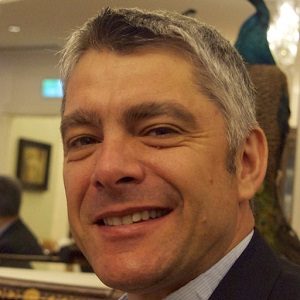A unique testimony from our Vice-President Technical Activities: Prof. Roberto Oboe – join our technical committees at IEEE Industrial Electronics Society!
 What makes the Industrial Electronics Society different from other Societies of the IEEE is its multidisciplinarity, stated in the Society’s Constitutions: “The Field of Interest of the IES shall be confined to the theory and applications of electronics, controls, communications, instrumentation and computational intelligence to industrial and manufacturing systems and process”. In an industrial scenario, different technologies concur to the functioning of complex systems and, now more than in the past, such technologies must be tightly integrated and coordinated, in order to achieve the best results, in terms of performance, reliability, efficiency etc. Developing science and technologies in many different directions and working toward their integration has been the leading concept of the founders of the IES.
What makes the Industrial Electronics Society different from other Societies of the IEEE is its multidisciplinarity, stated in the Society’s Constitutions: “The Field of Interest of the IES shall be confined to the theory and applications of electronics, controls, communications, instrumentation and computational intelligence to industrial and manufacturing systems and process”. In an industrial scenario, different technologies concur to the functioning of complex systems and, now more than in the past, such technologies must be tightly integrated and coordinated, in order to achieve the best results, in terms of performance, reliability, efficiency etc. Developing science and technologies in many different directions and working toward their integration has been the leading concept of the founders of the IES.
In these days, while approaching our 70th anniversary, the Society is still promoting the development of science and technology in many different areas of the Electrical and Electronic Engineering. In this effort, all the current 24 Technical Committees (TCs) of the IES play a crucial role. A Technical Committee is a group of at least 15 experts in a specific field, coming either from academia or industry, and its role is to promote activities in its field of interest and, at the same time, to contribute to the development of the IES by supporting conferences, journals, events and even contributing to the definition of new standards. When someone joins a Technical Committee, she/he enters a community of people, led by a member-elected Chair and sharing common interests, with the possibility to meet potential partners for research projects, as well as recognized experts in specific areas, who can help in developing new ideas or concepts.
Joining a Technical Committee means also becoming an active member of the IES, with and involvement in conference organization, paper review, editorial activities (e.g. Associate Editors of our Journals and Magazine are mostly coming from the various TCs) and the IES business at large. Compared to other societies, we have many more TCs and this is a sign of our vitality. On the other hand, having so many groups require some coordination, so in 2011 we introduced the TC Clusters, each of them composed by TCs that are active in one of the following four broad categories: Energy, Sensors & Control, Information and Communication Technologies, Cross-disciplinary. Clusters are intended to promote collaborative projects between TCs, as well as the mutual knowledge of the activities running in the various TCs, so a better synergy can be achieved.
My personal experience in the IES Technical Activities started in 2006 in Istanbul. At that time, the IES AdCom approved my proposal to activate a Technical Committee on Motion Control. Ten minutes after the approval of the new TC, I found myself preparing a proposal for a Special Section in the Transactions on Industrial Electronics. Later, I have been more and more involved in the Society’s business, attending to the AdCom meetings (and dinners), where I could meet the most talented experts and visionaries in the field of Industrial Electronics. Later, I have been involved as Guest and then Associate Editor of the Transactions on Industrial Electronics and the IEEE/ASME Transactions on Mechatronics. More recently, I have been serving the IES as an Officer, at first in the role of VP for Planning and Development and now as VP for Technical Activities. It all started with the involvement in a Technical Committee, so now I can tell you that joining the IES Technical Activities has been one of the most rewarding choices I ever made. It can be the same also for you, so browse our long list of TCs and, after visiting their web sites, select one that fits your interests, contact its Chair and start your journey with us. Be part of the IES Technical Activities!

